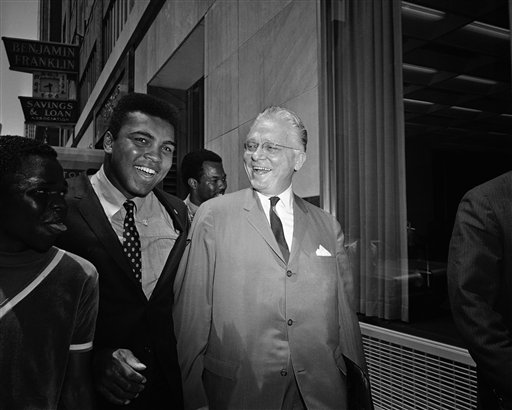Hayden C. Covington (1911–1978) was long the central advocate for fellow Jehovah’s Witnesses, whose beliefs and practices and fervent evangelism often led to conflict with civil authorities. He is one of the most important and least heralded attorneys on First Amendment issues, especially those related to the free exercise of religion.
Covington won many First Amendment cases before the Supreme Court
Covington is believed to have brought 111 petitions and appeals before the Supreme Court and to have won 85% of the 44 cases that he argued (Vile 2001: 134). His work demonstrates the important role that representatives of minority religions have often played in advancing religious freedom in the United States.
Born in Hopkins County, Texas, Covington earned his law degree from the San Antonio Bar Association’s School of Law, now St. Mary’s University School of Law. He quickly moved from work representing an insurance company to defending Jehovah’s Witnesses. When “Judge” J. F. Rutherford, the head of the faith, died in 1942, Covington succeeded him as chief counsel of the organization.
Covington represented Muhammad Ali in military draft case
One of Covington’s biggest clients was Cassius Clay, better known as Muhammad Ali. In Clay v. United States (1971), Clay faced indictment after refusing to be drafted into the armed forces based on claims that he was entitled to draft exemption as an appointed minister of the Lost-Found Nation of Islam. In a per curiam opinion, Clay’s conviction was reversed.
Covington argued for religious freedom for Jehovah’s Witnesses
Covington’s concerns for religious freedoms were often tied closely to the other First Amendment rights of speech, press, peaceable assembly, and petition. Covington argued for Jehovah’s Witnesses in West Virginia State Board of Education v. Barnette (1943), in which the Supreme Court reversed an earlier decision upholding compulsory flag salutes in public schools although Witnesses considered it a form of idolatry.
Covington also successfully intervened in Cantwell v. Connecticut (1940) — the first case applying the free exercise clause to the states — and in Jones v. City of Opelika II (1943), which established the right of Jehovah’s Witnesses to make door-to-door solicitations. Covington became involved on behalf of the boxer Cassius Clay’s effort to obtain the status of conscientious objector, a position supported by Jehovah’s Witnesses.
As an advocate, Covington had a reputation for fearlessness, and his arguments were animated but civil. He conflicted with Nathan Knorr, who succeeded Rutherford as president of the Witnesses, and was excommunicated for a time, but was reinstated by the time of his death in 1978.
John Vile is a professor of political science and dean of the Honors College at Middle Tennessee State University. He is co-editor of the Encyclopedia of the First Amendment. This article was originally published in 2009.

